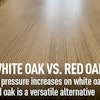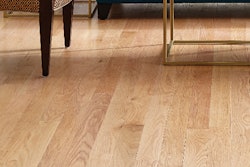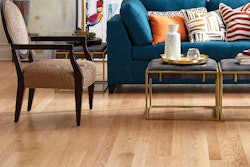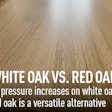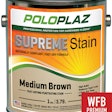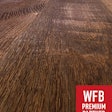A few months ago, I got to discussing language options and how the small choices we make in our presentation can have a big impact.
I was discussing possible captions to appear under the picture of a merbau tree. I was told that the original plan was that "the text would have to talk about where the tree comes from and the fact that it has been the focus of intense environmental scrutiny recently because of illegal logging."
They only had a few lines available to them for the caption. I didn't understand why it was necessary to have one that immediately leaped to the illegal species accusation (and was the only thing said). To me it was like saying "many blondes are traditionally described as stupid." It doesn't say that THIS one is stupid or that all blondes are stupid, but it immediately makes you wonder about the picture-is this a stupid blonde? (By the way, as I am blond, you can draw your own conclusions!) On the other hand, we could say, "Many blondes are considered very beautiful." It is just as general-it doesn't mean THIS one is beautiful or that all blondes are, but it's a positive comment and certainly one I'd prefer to appear under my picture!
The first caption concept suggested that a consumer needed to be warned about this wood. The explanation I was given was that "If someone sees this wood and thinks it looks beautiful, I think it's helpful for them to know that it has been under the microscope because of the Lacey Act, and therefore might be difficult to find. I can leave it to their own judgment whether they care or not..."
My immediate thought was that the Lacey Act applies to absolutely all woods. If the picture was for pecan, the caption could just as easily be that U.S. hardwoods must also comply with the Lacey Act and that some states have reported up to 6% of their material might be illegal. After all, the bottom line is that U.S. companies are obligated to handle legal wood, U.S. or imported. The standard applies to all wood, all sources, therefore material that is being sold in the U.S., be it merbau or maple, should be considered equally and it's not appropriate to cast suspicion on certain material.
There are other things that can be said. For example: "Merbau is in increasingly tight supply and most merbau flooring sold in the U.S. is engineered rather than solid to maximize the recovery of high-grade fiber." If people think about that statement, then they see that it indicates it's got a potential shortage, that it might be priced a bit higher, that they're not too likely to find solid, if that's what they want. It's informative and relatively neutral. Alternative statements could be "Merbau has a Janka of X compared to oak at Y..." "Merbau, like many tropical hardwoods, was first developed commercially as a decking wood, but companies soon recognized that its beauty could enhance the interior of the home as well." A caption didn't have to be particularly positive (beautiful blonde) or negative (stupid blonde), but simply informative (blondes are historically depicted as having more fun).
A long article on merbau might mention some organizations' opinions about merbau's risk level. However, when there is only a single paragraph, I think selective language does both the species and the companies who handle it a disservice by using that tiny space to give it a negative spin. The next time you read a small caption that is overly negative-or overly positive for that matter-remember that there is always another side. Language choices matter.













